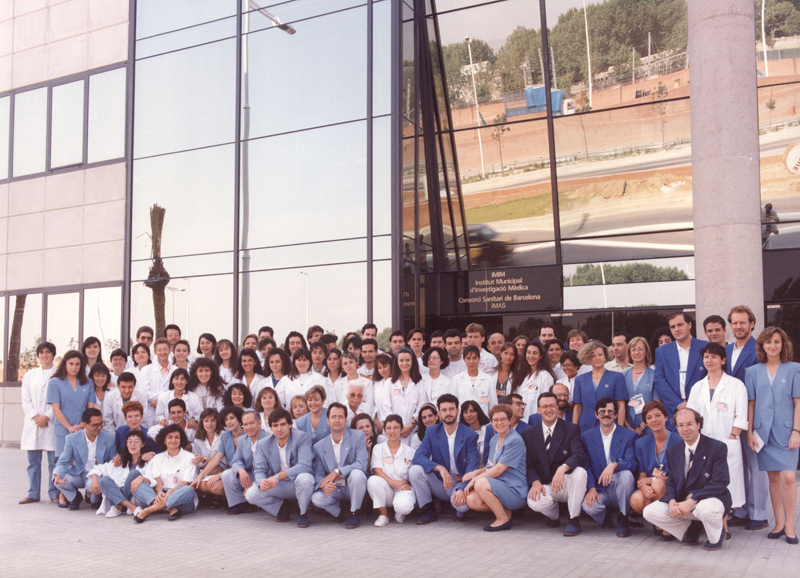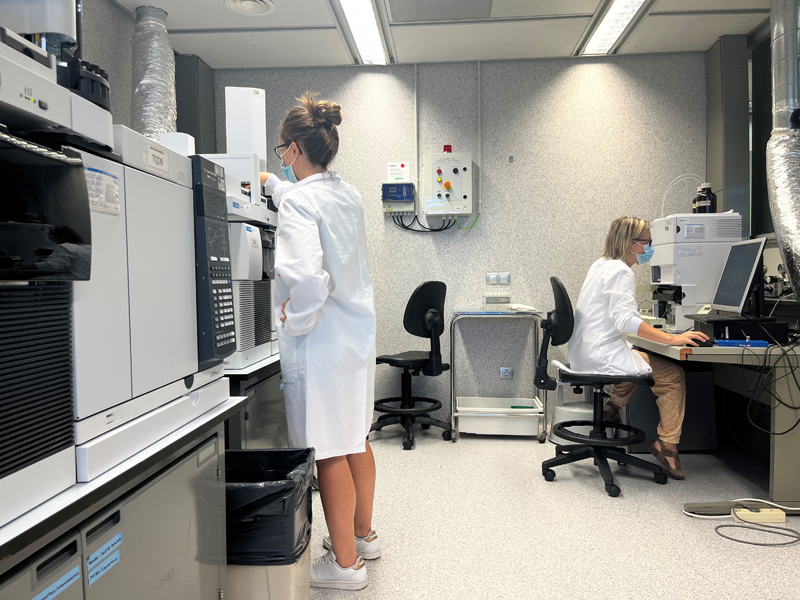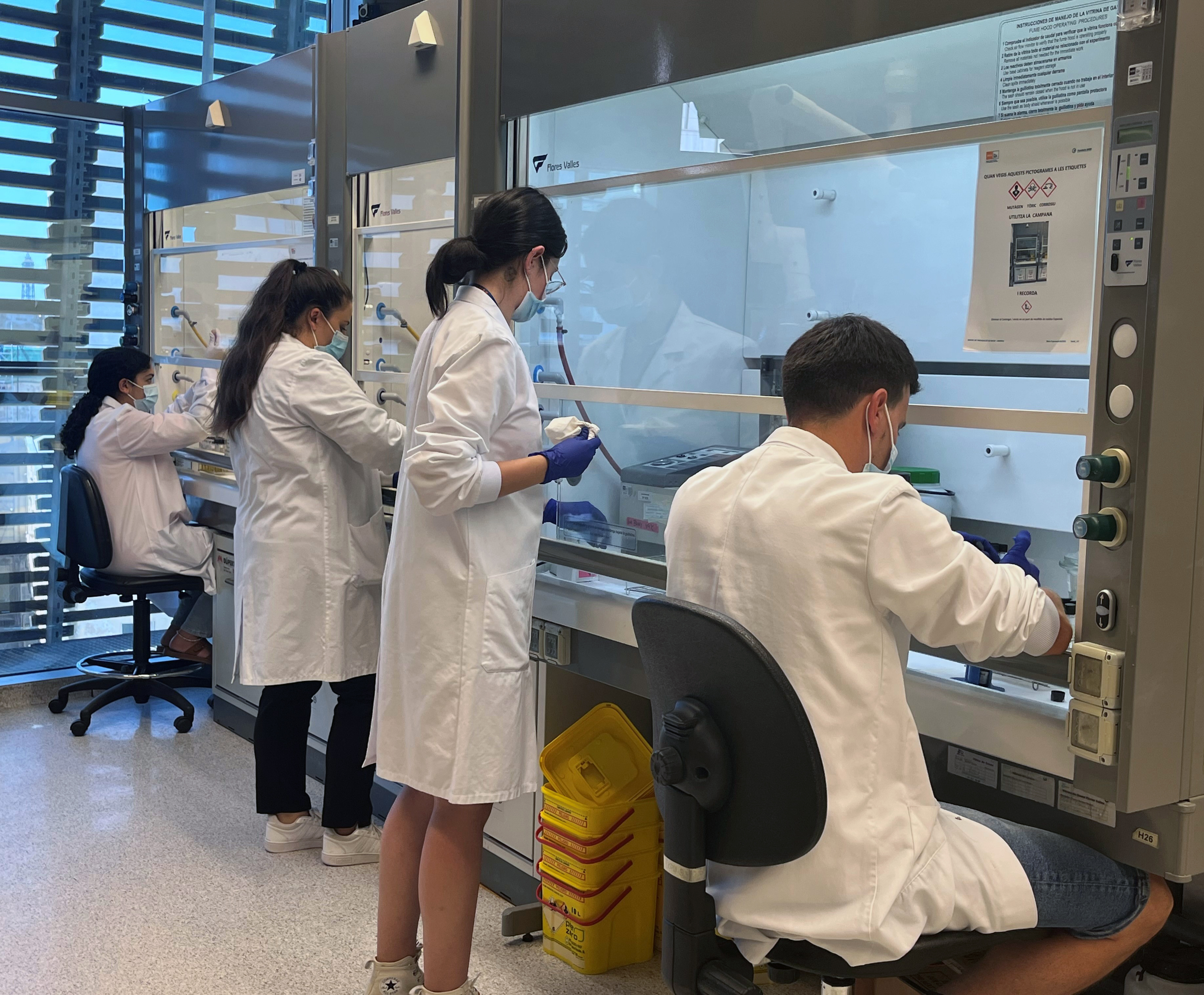
25/07/2022 - Institutional news
Monday 25 July marks the 30th anniversary of the inauguration of the Barcelona Olympic Games, which represented a historic milestone for the city. During this great event, the Anti-Doping Laboratory of the Hospital del Mar Medical Research Institute (IMIM-Hospital del Mar) was entrusted with the anti-doping controls of the athletes at both the Barcelona 92 Olympic and Paralympic Games.
The laboratory was set up in 1985 as part of the Barcelona Olympic bid. Its designation as an Olympic laboratory allowed the modernization of the facilities and equipment of both the laboratory itself and the IMIM. The laboratory took up anarea of 1100 m2, and during the Games it worked 24 hours a day. In total, close to 110 people were involved in the anti-doping work, considering the laboratory staff, guest scientific staff, volunteers and support staff.

Members who were part of the Anti-Doping Laboratory during the 1992 Barcelona Olympic and Paralympic Games.
"The lab had the most advanced anti-doping technology at the time and a great team of scientists running it. But the analytical capabilities were very different from today’s", explains Dr. Rosa Ventura Alemany, current director of the laboratory and analytical coordinator of the laboratory in 1992.
"Doping control has evolved a lot over the last 30 years, but what we have in common compared to 1992 is having the most advanced technology currently available, as well as an excellent team of scientists specialised in detecting prohibited substances and methods and in the research of new strategies to detect doping" adds Dr. Ventura.

Anti-Doping Laboratory facilities today
Over the years, many families of substances and methods have been added to the prohibited list, and the complexity of the analyses has increased significantly (currently over 500 compounds are monitored). The laboratory has access to newly developed technologies and its equipment is more than 100 times more sensitive than it was back in 1992. "This greater sensitivity, together with a better knowledge of the metabolism of doping substances, means that the administration of substances can be detected with a retrospectivity for several weeks, whereas at that time the detection window was only a few days", explains the head of the laboratory.
Progress has also been made in the detection of peptide hormones, such as erythropoietin or growth hormone. "We now have very sensitive technologies based on immunological methods that have been developed and improved over the last 20 years." In addition, "The introduction of biological passport for athletes has also been a turning point in the detection of blood doping and anabolic steroid use, and also for its deterrent effect", comments Ventura. The passport involves the longitudinal monitoring of a number of parameters that can be markers of doping. Athlete-specific normality intervals are calculated for each parameter, so that any deviation in future samples may indicate doping.
 Members of the Anti-Doping Laboratory currently processing samples.
Members of the Anti-Doping Laboratory currently processing samples.
Currently, the laboratory is working on the introduction of dried blood spots as a new matrix for anti-doping controls. These are capillary blood samples that are allowed to dry on an adsorbent support, usually cellulose. These samples will improve the detection of some substances and increase the deterrent effect of sampling by allowing massive testing both during competitions and in training periods, since the process of collecting, transporting and storing the samples is far easier.
But there is still a long way to go, because as anti-doping evolves, so does doping. The World Anti-Doping Agency is putting a lot of effort into education, training and awareness-raising campaigns for athletes and involving athletes also in anti-doping policies, as this is one of the most important ways to tip the balance in favour of clean sport. "Anti-doping labs continue to be a key factor in this shared fight, which is not only important for elite sport, but is also part of a much broader framework that concerns the health of the general population and the ethical values of our society", concludes Dr. Rosa Ventura.
Servei de Comunicació:
Marta Calsina(ELIMINAR)
Tel:
(+34) 93 316 06 80
Doctor Aiguader, 88
08226 Barcelona
© Institut Hospital del Mar
d'Investigacions MèdiquesLegal Notice and Privacy Policy | Cookie Policy | Site Index | Accessibility | Find Us | Contact